wikiHow is a “wiki,” similar to Wikipedia, which means that many of our articles are co-written by multiple authors. To create this article, 22 people, some anonymous, worked to edit and improve it over time.
There are 16 references cited in this article, which can be found at the bottom of the page.
This article has been viewed 284,705 times.
Learn more...
Bacterial vaginosis (BV) is a vaginal infection that occurs when the usual balance of "good" and "bad" bacteria in the vagina is disrupted. BV is extremely common, especially among women of childbearing years—in fact, most women will experience it at some point in their lives.[1] Although BV is not usually serious, it can lead to harmful complications if left untreated. Start with Step 1 below to learn how to recognize the symptoms of BV, and keep reading for some helpful information on treatment and prevention methods.
Steps
Recognizing the Symptoms
-
1Check for unusual or increased vaginal discharge. BV is often accompanied by a thin grey, white, or greenish-colored discharge. See your doctor if you have more vaginal discharge than usual, or if the color, texture, or smell of your discharge seems different from usual.[2]
- It’s especially important to see your doctor if the discharge is accompanied by other symptoms, like a fever or an unusual odor.
-
2Look for an unpleasant odor. The discharge is often accompanied by an unpleasant odor, which can be described as "fish-like". The odor usually becomes worse after intercourse.[3]Advertisement
-
3Watch for a burning sensation or pain while urinating. Though BV does not normally cause pain, some women experience a burning sensation during urination. Burning when you pee can also be a symptom of other conditions, such as a yeast infection, a urinary tract infection, or a sexually transmitted infection.[4]
-
4Make note of itchiness. The outside of the vagina may become itchy, though the itchiness is normally mild.[5] It can become worse if you use soap around the area.
-
5Understand that BV sometimes has no symptoms. Some women with BV experience no obvious signs or symptoms at all. This is unfortunate as, if left untreated, BV can lead to more serious health issues down the line.[6]
Treating and Preventing BV
-
1Familiarize yourself with the risks of BV. Although bacterial vaginosis is usually pretty harmless, in some cases it can lead to serious complications, if left untreated. These complications include:[7]
- An increased susceptibility to HIV infection if exposed to the HIV virus, and an increased susceptibility to other sexually transmitted infections, such as chlamydia and gonorrhea.
- Increased risk of infection following surgical procedures such as hysterectomies and abortions.[8]
- Increased risk of complications during pregnancy, such as premature delivery and low birth weight.
- An increased risk of developing pelvic inflammatory disease, which is an infection of the uterus and fallopian tubes that can lead to infertility.
-
2See your doctor if you suspect you may have BV. In about one third of cases, BV will clear up on its own without treatment. However, it's still important to see your doctor and receive antibiotic treatment, in order to avoid potentially serious complications.[9]
- Your doctor will usually prescribe an antibiotic such as metronidazole or clindamycin. These antibiotics can be taken orally as a pill, or applied topically as a vaginal gel or cream.
- It is particularly important to receive treatment for BV if you are pregnant, in order to avoid complications.
- In fact, the CDC recommends that all pregnant women who have ever had a premature delivery or low birth weight baby should undergo a BV examination and, if necessary, receive treatment.[10]
-
3Prevent BV from recurring. Unfortunately, BV is still not fully understood by scientists, so there is no surefire way to prevent it from recurring. However, there are several things you can do to maintain the balance of "good" and "bad" bacteria in the vagina, which can help you to avoid BV:[11]
- Limit your number of sexual partners: Having sex with multiple partners can upset the natural balance of the vagina. Therefore, try to abstain from sex or limit the number of people you have sex with. When you do have sex, make sure to use a male latex condom to avoid picking up an STD.[12]
- Do not douche: Douching disrupts the normal balance of your vagina and makes you more susceptible to developing BV. Douching will not clear a vaginal infection and is strongly discouraged by the US Department of Health and Human Services.[13]
- Avoid vaginal irritation: Things like washing your vaginal area with soap, using scented tampons or sanitary pads, and frequently using hot tubs can irritate your vagina and increase the risk of developing BV.[14] The use of IUDs has also been linked with an increased risk of BV.
- Alter your diet: Some research has suggested that following a diet rich in folate, calcium and vitamin E can help to decrease the risk of developing BV.[15] It can also be helpful to quit smoking.[16]
Expert Q&A
-
QuestionHow do I prevent getting bacterial vaginosis again?
 Luba Lee, FNP-BC, MSLuba Lee, FNP-BC is a Board-Certified Family Nurse Practitioner (FNP) and educator in Tennessee with over a decade of clinical experience. Luba has certifications in Pediatric Advanced Life Support (PALS), Emergency Medicine, Advanced Cardiac Life Support (ACLS), Team Building, and Critical Care Nursing. She received her Master of Science in Nursing (MSN) from the University of Tennessee in 2006.
Luba Lee, FNP-BC, MSLuba Lee, FNP-BC is a Board-Certified Family Nurse Practitioner (FNP) and educator in Tennessee with over a decade of clinical experience. Luba has certifications in Pediatric Advanced Life Support (PALS), Emergency Medicine, Advanced Cardiac Life Support (ACLS), Team Building, and Critical Care Nursing. She received her Master of Science in Nursing (MSN) from the University of Tennessee in 2006.
Board-Certified Family Nurse Practitioner Having a monogamous relationship, delaying the age at which one starts to engage in sexual intercourse, and avoiding regular douching all help in preventing BV. Also, maintaining healthy vaginal flora with the help of diet, exercise, proper hygiene practices, and stress reduction.
Having a monogamous relationship, delaying the age at which one starts to engage in sexual intercourse, and avoiding regular douching all help in preventing BV. Also, maintaining healthy vaginal flora with the help of diet, exercise, proper hygiene practices, and stress reduction.
Warnings
- It is extremely important to know your baseline individually so that you can identify an abnormal vaginal discharge.⧼thumbs_response⧽
- Expectant mothers with BV have babies born premature or with low birth weight more often than women who do not have the infection.[20]⧼thumbs_response⧽
- You can’t spread bacterial vaginosis from one person to another during sex, but sexual activity can make you more prone to developing BV.[21]⧼thumbs_response⧽
- Getting BV may put you at greater risk of catching sexually transmitted infections, such as HIV.[22]⧼thumbs_response⧽
- The symptoms of BV can be similar to those of other, more serious infections, such as gonorrhea or chlamydia. For this reason, it’s important to get a diagnosis from your doctor to rule out other causes.[23]⧼thumbs_response⧽
References
- ↑ https://www.cdc.gov/std/bv/stdfact-bacterial-vaginosis.htm
- ↑ https://www.nhs.uk/conditions/bacterial-vaginosis/
- ↑ https://www.uofmhealth.org/health-library/hw53097
- ↑ https://www.womenshealth.gov/a-z-topics/bacterial-vaginosis
- ↑ https://www.plannedparenthood.org/learn/health-and-wellness/vaginitis/what-bacterial-vaginosis
- ↑ https://www.cdc.gov/std/bv/stdfact-bacterial-vaginosis.htm
- ↑ https://www.ncbi.nlm.nih.gov/books/NBK459216/
- ↑ https://pubmed.ncbi.nlm.nih.gov/31499057/
- ↑ https://my.clevelandclinic.org/health/diseases/3963-bacterial-vaginosis
- ↑ http://www.cdc.gov/std/bv/stdfact-bacterial-vaginosis.htm
- ↑ https://www.plannedparenthood.org/learn/health-and-wellness/vaginitis/how-do-i-prevent-vaginitis
- ↑ https://www.womenshealth.gov/a-z-topics/bacterial-vaginosis
- ↑ https://www.womenshealth.gov/a-z-topics/douching
- ↑ https://www.nhsinform.scot/illnesses-and-conditions/sexual-and-reproductive/bacterial-vaginosis
- ↑ https://www.ncbi.nlm.nih.gov/pmc/articles/PMC2663425/
- ↑ https://www.ncbi.nlm.nih.gov/pmc/articles/PMC4161850/
- ↑ https://www.plannedparenthood.org/learn/health-and-wellness/pelvic-inflammatory-disease-pid
- ↑ https://www.aafp.org/afp/2000/0515/p3090.html
- ↑ https://www.cdc.gov/std/bv/stdfact-bacterial-vaginosis.htm
- ↑ https://www.cdc.gov/std/bv/stdfact-bacterial-vaginosis.htm
- ↑ https://my.clevelandclinic.org/health/diseases/3963-bacterial-vaginosis
- ↑ https://www.ncbi.nlm.nih.gov/books/NBK459216/
- ↑ https://www.ncbi.nlm.nih.gov/books/NBK459216/
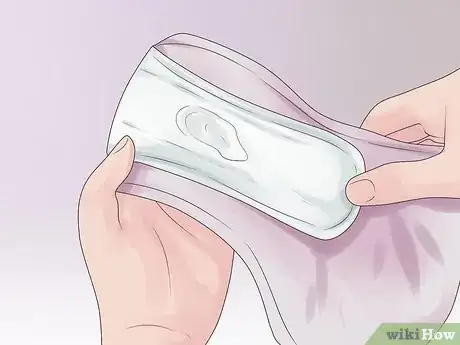
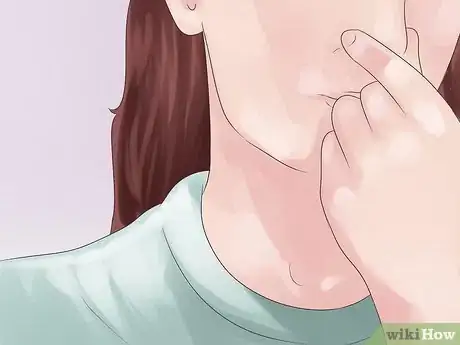
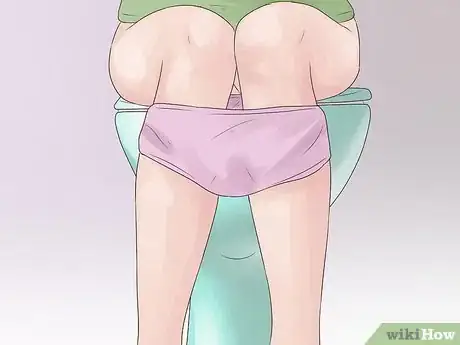


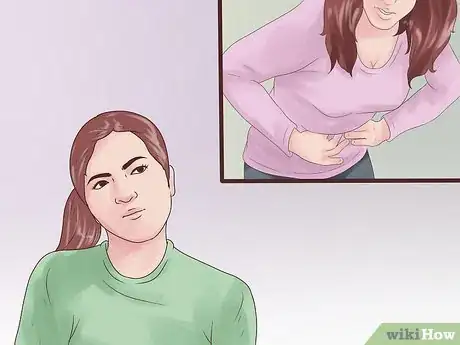

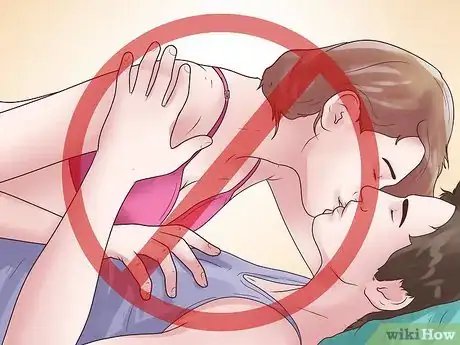
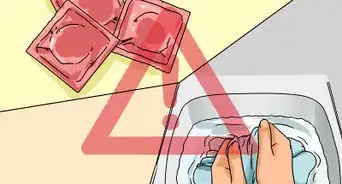




















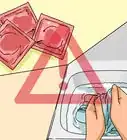






































Medical Disclaimer
The content of this article is not intended to be a substitute for professional medical advice, examination, diagnosis, or treatment. You should always contact your doctor or other qualified healthcare professional before starting, changing, or stopping any kind of health treatment.
Read More...